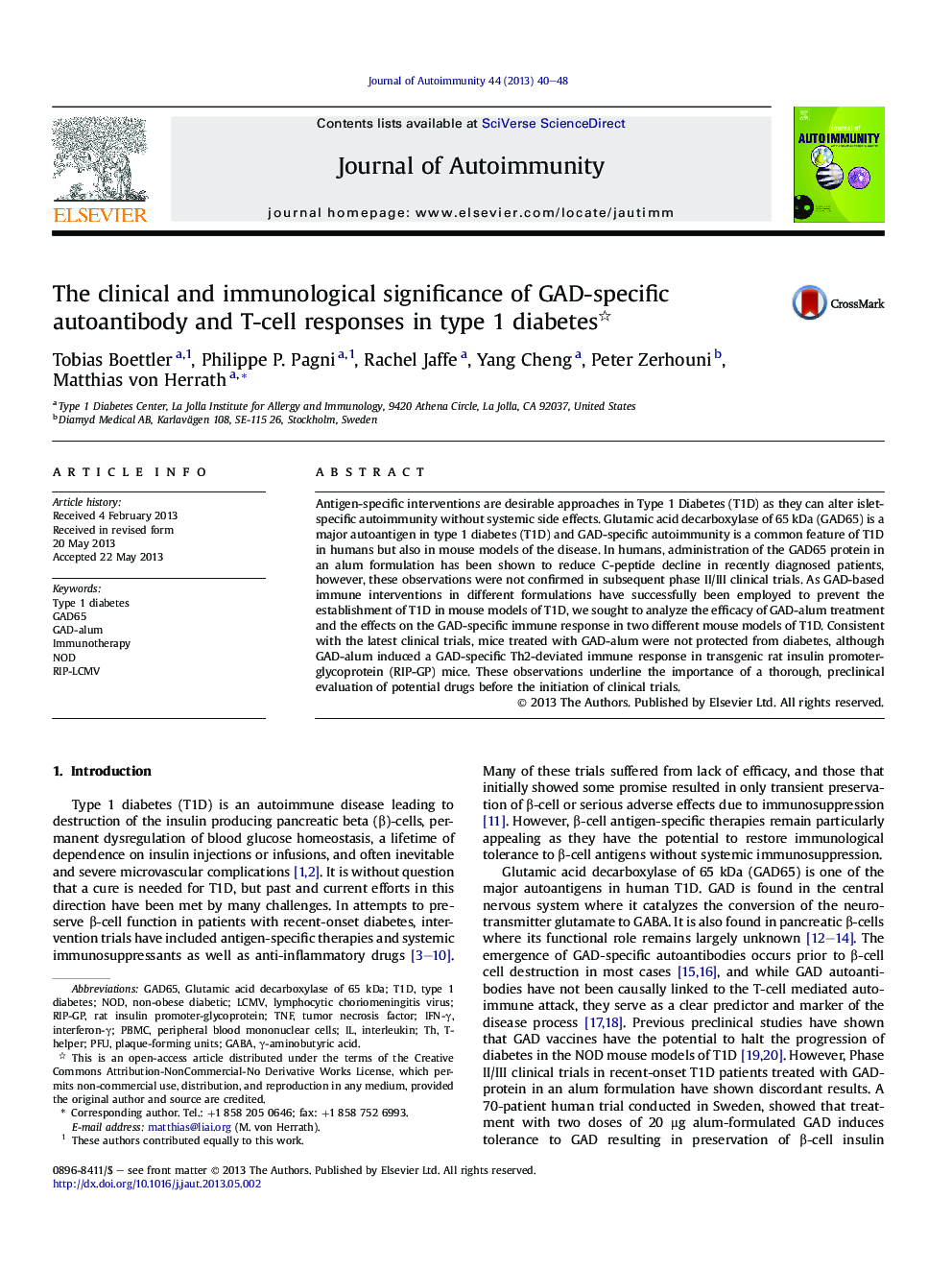| Article ID | Journal | Published Year | Pages | File Type |
|---|---|---|---|---|
| 6119333 | Journal of Autoimmunity | 2013 | 9 Pages |
Abstract
Antigen-specific interventions are desirable approaches in Type 1 Diabetes (T1D) as they can alter islet-specific autoimmunity without systemic side effects. Glutamic acid decarboxylase of 65Â kDa (GAD65) is a major autoantigen in type 1 diabetes (T1D) and GAD-specific autoimmunity is a common feature of T1D in humans but also in mouse models of the disease. In humans, administration of the GAD65 protein in an alum formulation has been shown to reduce C-peptide decline in recently diagnosed patients, however, these observations were not confirmed in subsequent phase II/III clinical trials. As GAD-based immune interventions in different formulations have successfully been employed to prevent the establishment of T1D in mouse models of T1D, we sought to analyze the efficacy of GAD-alum treatment and the effects on the GAD-specific immune response in two different mouse models of T1D. Consistent with the latest clinical trials, mice treated with GAD-alum were not protected from diabetes, although GAD-alum induced a GAD-specific Th2-deviated immune response in transgenic rat insulin promoter-glycoprotein (RIP-GP) mice. These observations underline the importance of a thorough, preclinical evaluation of potential drugs before the initiation of clinical trials.
Keywords
Related Topics
Life Sciences
Immunology and Microbiology
Immunology
Authors
Tobias Boettler, Philippe P. Pagni, Rachel Jaffe, Yang Cheng, Peter Zerhouni, Matthias von Herrath,
